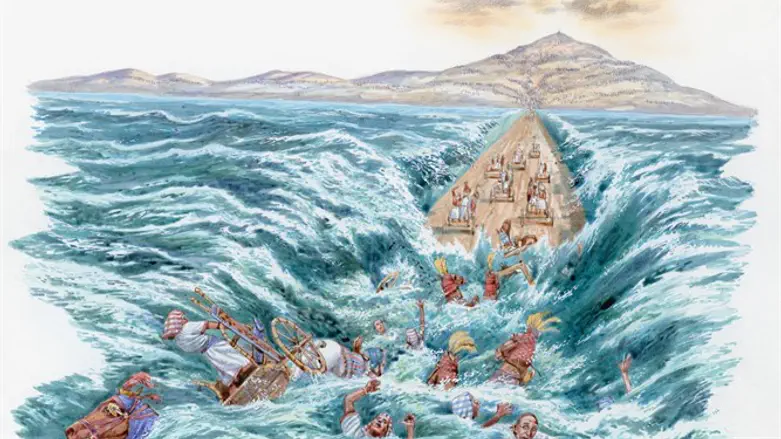
In Psalm 114, which we chant during Hallel, we declare, “Hayam, ra’ah vayanos” – the sea saw and it fled. This is a description of the miraculous parting of the waters of the Red Sea. And the sea didn’t just part, it saw something which prompted the waters to go the other way.
The Mechilta explains that the sea saw the coffin of Yosef. The Israelites were carrying his remains with them on all of their journeys and eventually he would be buried in the city of Shechem in the land of Israel.
It explains that the very same term, ‘vayanos’ – ‘he fled’ – is mentioned on no less than four occasions, with regard to Yosef, in Parashat Vayeishev. Potiphar’s wife tried to seduce him and his response was, vayanos – he fled from the scene. So my question is: what is the thematic connection between the parting of the waters on the one hand and what happened with Yosef and Potiphar’s wife, on the other?
And I’d like to suggest as follows. When the waters of the sea flow, they do so in a natural direction. What Hashem caused through the parting of the waters was that the waters defied nature and went in the opposite direction.
And that is exactly what happened with Yosef. His natural inclination was to go with the flow.
However, he stood up to temptation and he fled in the opposite direction. The Mechilta tells us that the parting of the waters came as a reward for Yosef’s brave deed and I think that is very significant for us. In Pirkei Avot, we are taught, “Eizeh hu gibor?” – Who is truly mighty?
And the answer is, “Hakovesh et yitzro” – it is the person who is able to overcome his or her negative urges.
That is true strength of character. In the same way as the reward for Yosef’s deed came centuries later, so too, when all of us – and it does happen to all of us – stand up to temptation and overcome that urge, we will find that the dividends for such decisive, positive and courageous action will be with us for a long time to come.